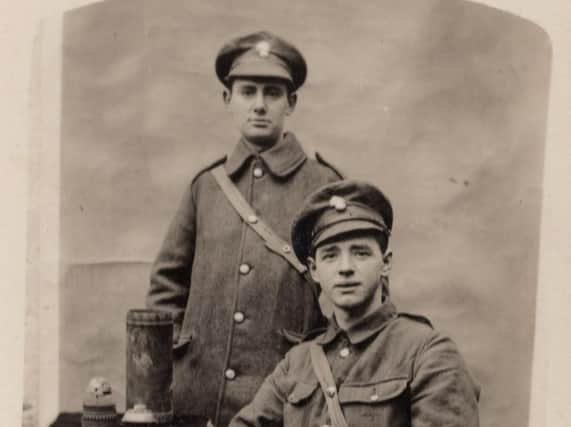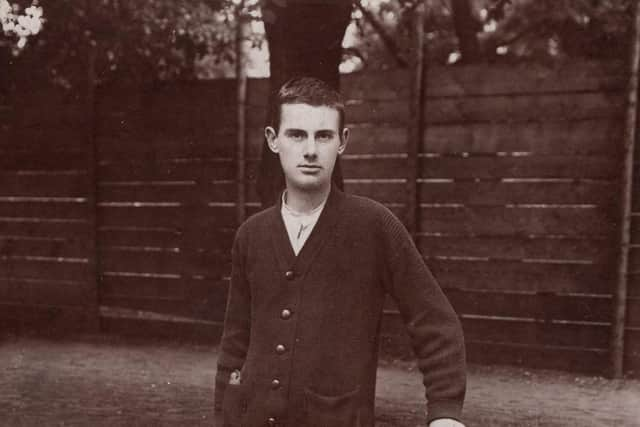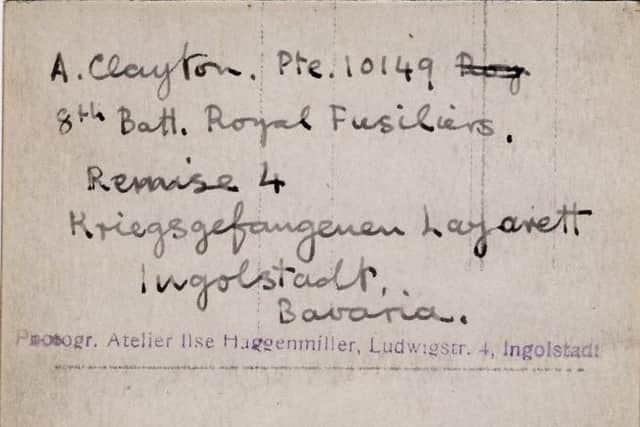Rediscovered First World War memoir of Leeds art student turned into extraordinary book
This article contains affiliate links. We may earn a small commission on items purchased through this article, but that does not affect our editorial judgement.


The autobiographical account was written by Albert Clayton who fought in northern France and went 'over the top' four times.
A relative from Bradford, Micah Duckworth, recently discovered the memoirs in a cardboard box which he had inherited.
Advertisement
Hide AdAdvertisement
Hide AdMicah said: "It was an extraordinary moment when we discovered the handwritten script.


"At first we assumed it was fiction, but once we started reading we realised it is a fully narrated first-hand account of Albert's war adventure. We had no idea of its existence.”
Albert, born in Accrington, trained at the Leeds College of Art before he joined the Royal Fusiliers in 1916.
He fought in France in the Battle of Arras before being captured by the Germans after lying injured in a shell hole in May 1917.
Advertisement
Hide AdAdvertisement
Hide Ad

Albert's memoirs, now published under the title Long Before Daybreak, depict both the ordinary details of army life and the horrors which surrounded him.
He writes of pilfering red wine from a house then stopping to have a souvenir photo taken while still under fire.
Just days later, he describes being confronted with the contorted body of a dead soldier.
Micah added: “What is remarkable is how he writes with such a matter-of-fact and observational style.
Advertisement
Hide AdAdvertisement
Hide Ad"He describes terrible things in very ordinary language. It may just be how that generation coped with what was going on around them.
“He describes the efforts and escapades of his comrades with great affection. There is little trace of self pity, though he is grateful for any good luck and minor relief when it comes his way.”
After the war Albert worked as an art teacher and died in 1981 aged 95.
Since discovering the letters, Micah has worked hard on the 'exciting' project to turn Albert's story into a published book.
Advertisement
Hide AdAdvertisement
Hide AdMicah said: "The account is so accurate that we have been able to trace what happened to many of the soldiers who he named as having fought alongside him.
"Records show some died in the war while others like Albert survived and it would be wonderful to make contact with any living relatives we can share this story with.”
Long Before Daybreak can be purchased on Amazon in paperback or Kindle edition.
Comment Guidelines
National World encourages reader discussion on our stories. User feedback, insights and back-and-forth exchanges add a rich layer of context to reporting. Please review our Community Guidelines before commenting.
